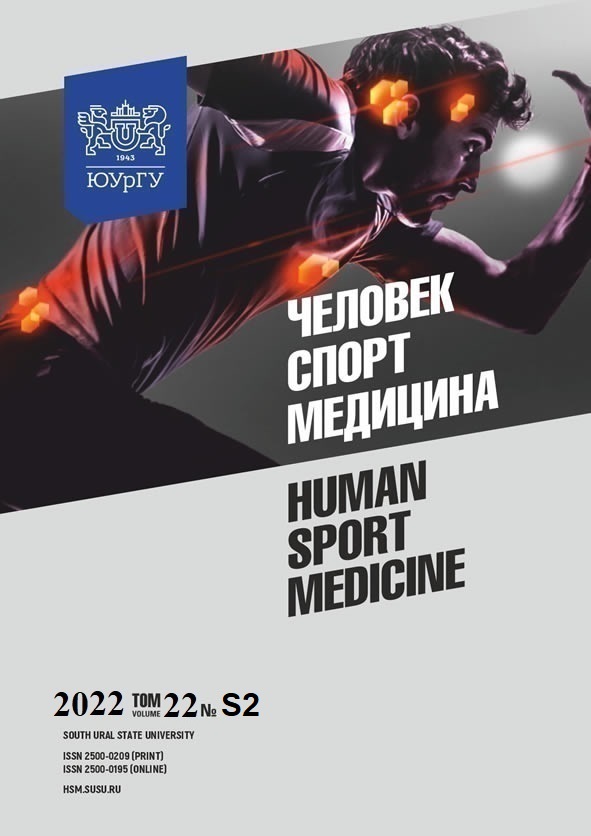DIGITAL CORRECTION TEST FOR ASSESSING COGNITIVE RESPONSE TO PHYSICAL LOAD
Abstract
Aim. The aim of the study was to evaluate a possible use of a digital correction test (DCT) as a method for maintaining changes in cognitive functions after short-term physical exercise. Materials and methods. The study involved 14 university students (7 male and 7 female students) aged 19.21 ± 1.05 years. The DCT was the principal research technique (two trials with a 5-minute rest). A week later, the subjects performed two more trials of the DCT with short-term physical exercise between trials (a 5-second Wingate test, Monark Ergomedic 894E cycle ergometer, Switzerland). Results. It was found that the results of the DCT with a 5-minute rest were not significantly different (p > 0.05). However, the post-exercise results of the DCT were different from those obtained before physical activity (p < 0.05). Conclusion. The results obtained suggest that a single 5-second physical exercise has a positive effect on cognitive functions. Moreover,
the DCT itself is a correct tool for assessing the effect of physical exercise on cognitive functions.
References
References on translit
Copyright (c) 2022 Human. Sport. Medicine

This work is licensed under a Creative Commons Attribution-NonCommercial-NoDerivatives 4.0 International License.















